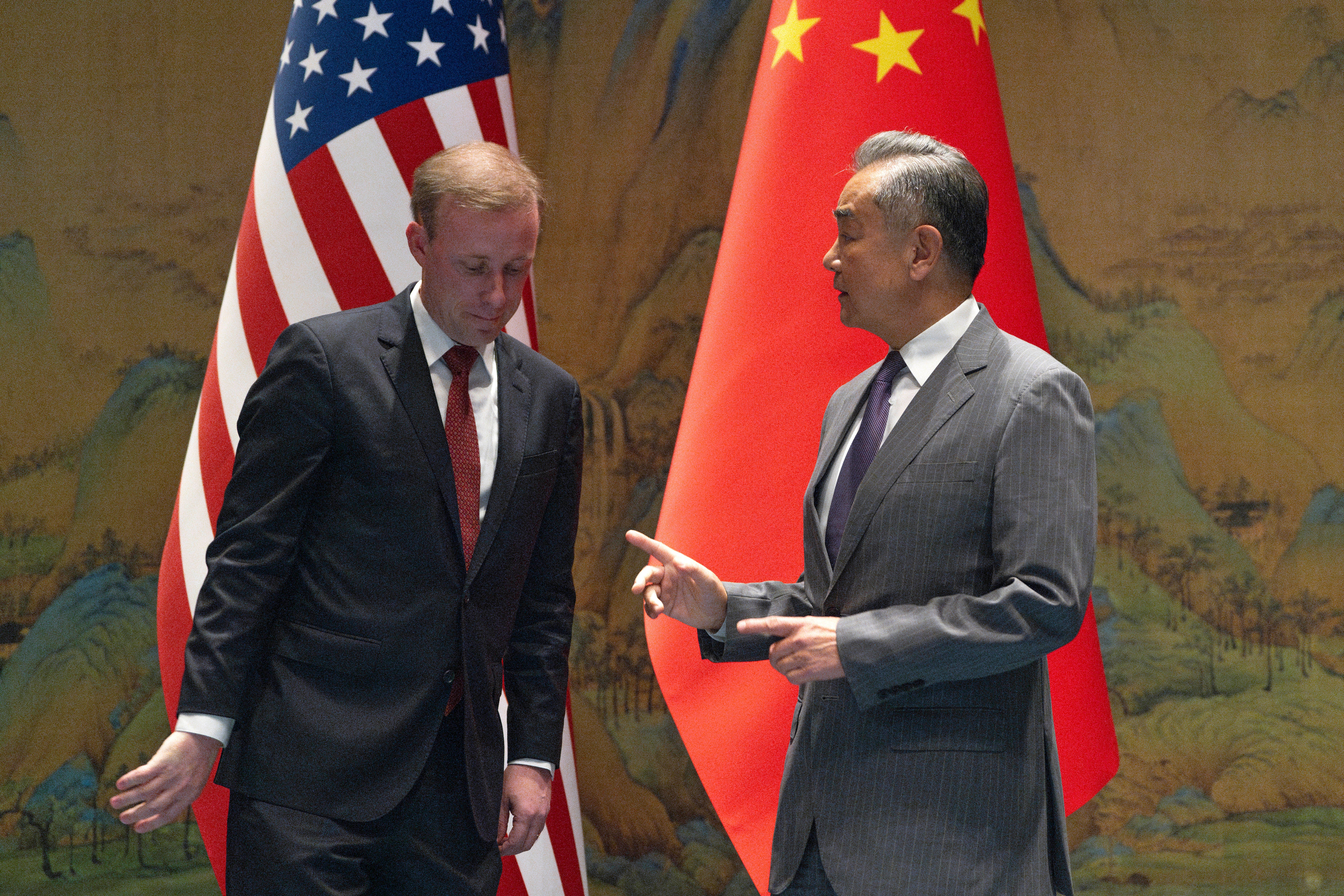China says Taiwan's independence is the greatest threat to regional stability but vows no new action
China’s foreign minister says Taiwan’s independence poses the greatest threat to stability in the immediate region but is vowing no new action that could bring Beijing into conflict with the United States or others

China's foreign minister on Wednesday said Taiwan's independence poses the greatest threat to stability in the immediate region but vowed no new action that could bring Beijing into conflict with the United States or others amid rising tensions.
Chinese Foreign Minister Wang Yi spoke during a visit by U.S. National Security Adviser Jake Sullivan to Beijing. The White House said the two sides welcomed efforts in “planning for a leader-level call in the coming weeks.”
Taiwan, a self-governing island democracy that split from authoritarian communist China in 1949, has rejected Beijing's demands that it accept unification with the mainland by peace or by force.
The U.S. should comply with Chinese interpretations regarding China and “support China’s peaceful reunification,” the official Xinhua News Agency quoted Wang as saying.
The White House statement said Sullivan “underscored the importance of maintaining peace and stability across the Taiwan Strait.”
The U.S. has been trying to get relations with China on more of an even keel following disputes over trade and Beijing’s financial backing for Russia's defense industry during its full-scale invasion of Ukraine.
Despite their political differences, China and the U.S. maintain close economic ties and large numbers of Chinese have moved to the U.S. for work as Beijing’s state-centered economy struggles.
The U.S. military has pushed back against China's claim to virtually the entire South China Sea, saying this week it would be open to consultations about escorting Philippine ships in the disputed sea amid a spike in hostilities between Beijing and Manila on the issue.
The White House said Sullivan and Wang “noted the importance of regular, ongoing military-to-military communications and planned to hold a theater commander telephone call in the near future.”
China has rapidly expanded its military and has become increasingly assertive in pursuing its territorial claims in the South China Sea.
The Philippines has called for the Association of Southeast Asian Nations to do more. The 10-nation Southeast Asian bloc includes the Philippines, Vietnam, Malaysia and Brunei, which have South China Sea claims that overlap with each other as well as China’s and Taiwan’s.